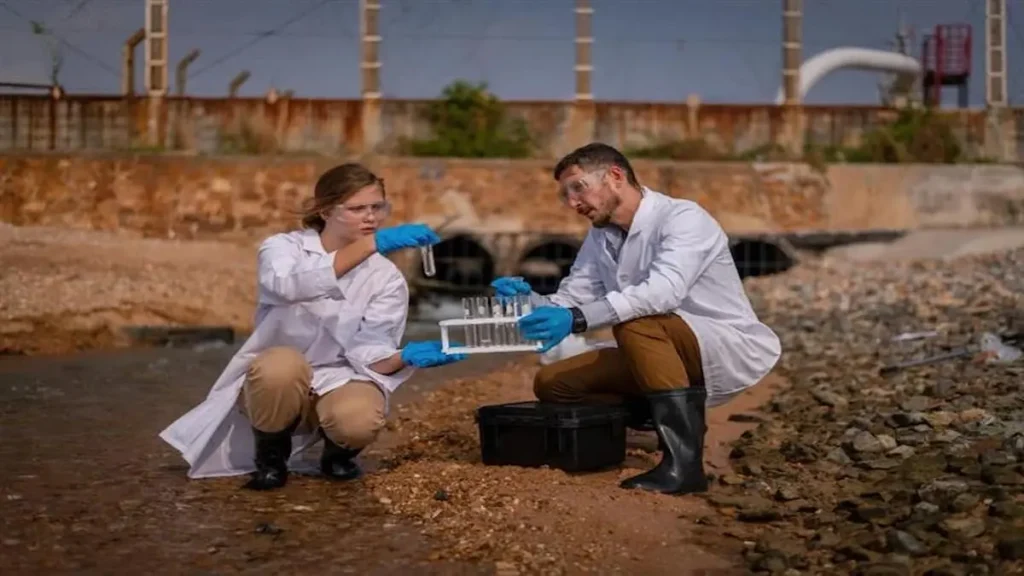Learn how natural processes transform wastewater into reusable, cleaner water using eco-friendly methods.
Water is one of our most precious resources, yet much of it becomes contaminated every day through domestic, industrial, and agricultural activities. To protect public health and the environment, this wastewater must be treated before it can be reused or safely returned to nature. This is where biological sewage treatment comes in.
Unlike chemical-heavy processes, biological treatment relies on natural organisms mainly bacteria and microbes that break down organic pollutants. These living systems are efficient, sustainable, and environmentally safe. Due to its reliance on natural processes, biological treatment has become one of the most widely adopted solutions for addressing both urban and industrial wastewater challenges.
How the Biological Sewage Treatment Process Works
At its core, the biological sewage treatment process uses microorganisms to consume and decompose organic waste. These microbes thrive in oxygen-rich environments (aerobic systems) or oxygen-free environments (anaerobic systems), depending on the method applied.
In aerobic sewage treatment, oxygen is supplied to encourage bacteria to break down waste into carbon dioxide, water, and harmless by-products. In anaerobic treatment, microbes operate without oxygen, converting waste into biogas that can even be used for energy.
The role of bacteria in sewage treatment is critical. These microbes act as natural recyclers, reducing harmful pollutants, breaking down organic matter, and stabilizing the water. As a result, the treated water becomes much safer, more transparent, and often reusable for non-drinking purposes like irrigation or industrial processes.
This natural system mimics what already occurs in rivers, wetlands, and soil but in a controlled, accelerated, and more reliable manner.
Natural Methods of Wastewater Treatment
Several effective natural methods for wastewater treatment are available for communities and industries to adopt. These systems minimize chemical use and support sustainable water management solutions.
Some common approaches include:
- Constructed Wetlands – Artificially designed marshes where plants and microbes filter contaminants.
- Microbial Sewage Treatment – Harnessing naturally occurring microorganisms for pollutant breakdown.
- Organic Water Treatment – Using natural media such as gravel, soil, and plants to filter wastewater.
- Natural Sewage Treatment Systems – Low-energy processes designed to mimic nature’s purification abilities.
- Natural Wastewater Treatment – Systems that recycle water back into the ecosystem safely.
Each of these solutions highlights the balance between technology and ecology, ensuring water purification while preserving the environment.
Why Biological Treatment Is More Sustainable
Traditional sewage treatment often involves the use of chemical disinfectants and high energy consumption. While effective, these methods can create harmful by-products and increase costs. Biological treatment methods are generally eco-friendlier and more cost-effective over time.
Because microbes drive the sewage purification process, very little external chemical input is needed. This reduces environmental risks and aligns with global goals for greener practices. Additionally, treated water can be reused for wastewater recycling, thereby decreasing the demand for freshwater.
By adopting natural wastewater treatment, communities can reduce pollution, conserve water, and create healthier living environments. It’s not just a treatment process—it’s a step toward responsible water stewardship.
Biological Wastewater Management in Practice
The application of biological wastewater management extends across households, municipalities, and industries.
- Residential communities utilize compact natural systems to recycle greywater for gardening purposes.
- Industries utilize large-scale biological units to manage effluents and comply with discharge regulations.
- Municipalities integrate these methods into centralized plants for cleaner rivers and lakes.
What makes these systems so reliable is their adaptability. Whether it’s a small village or a large manufacturing unit, wastewater treatment through natural systems ensures compliance with safety standards while promoting ecological balance.
Over time, the value of organic water treatment has proven itself not just as a cleaning method but also as a way to support long-term sustainability.
Moving Toward Sustainable Water Solutions
As populations grow and water scarcity becomes more pressing, it is essential to rethink how we manage wastewater. Relying on natural sewage treatment systems and sustainable water solutions helps communities build resilience while protecting natural resources.
Investing in biological sewage treatment and wastewater recycling is no longer optional it’s a necessity for a healthier and more sustainable future.
Building a Cleaner Tomorrow
Biological sewage treatment offers a natural, effective, and sustainable solution to one of the most pressing environmental challenges: wastewater management. By harnessing the power of microbes and natural processes, communities and industries can purify water, recycle it, and protect ecosystems. Choosing these natural wastewater treatment methods ensures long-term benefits for both people and the planet.
At Amoda Chem, we specialize in advanced biological wastewater management and customized treatment systems tailored to your specific needs. From aerobic sewage treatment to innovative organic water treatment solutions, our expertise helps industries, municipalities, and communities adopt cleaner and greener practices. Discover our sustainable solutions at Amoda Chem and take the next step toward a future where every drop matters.

